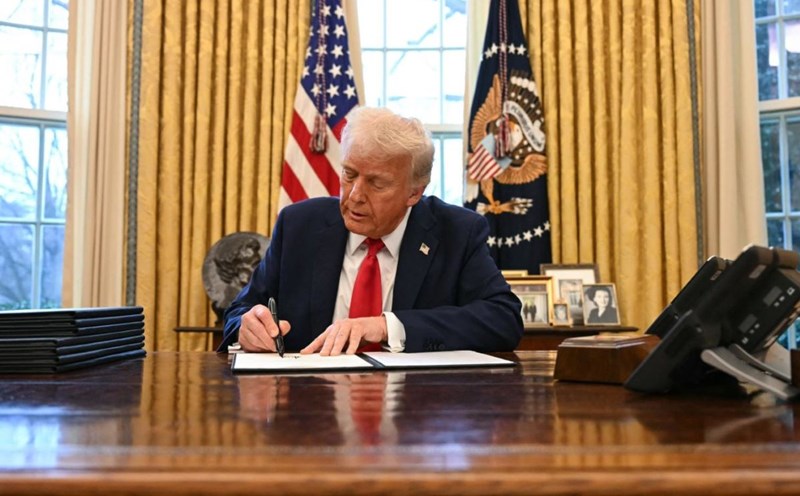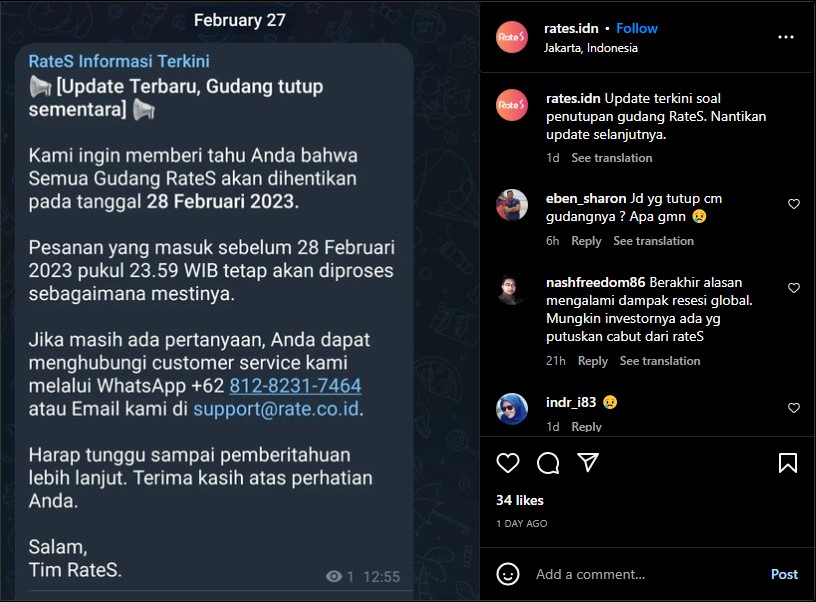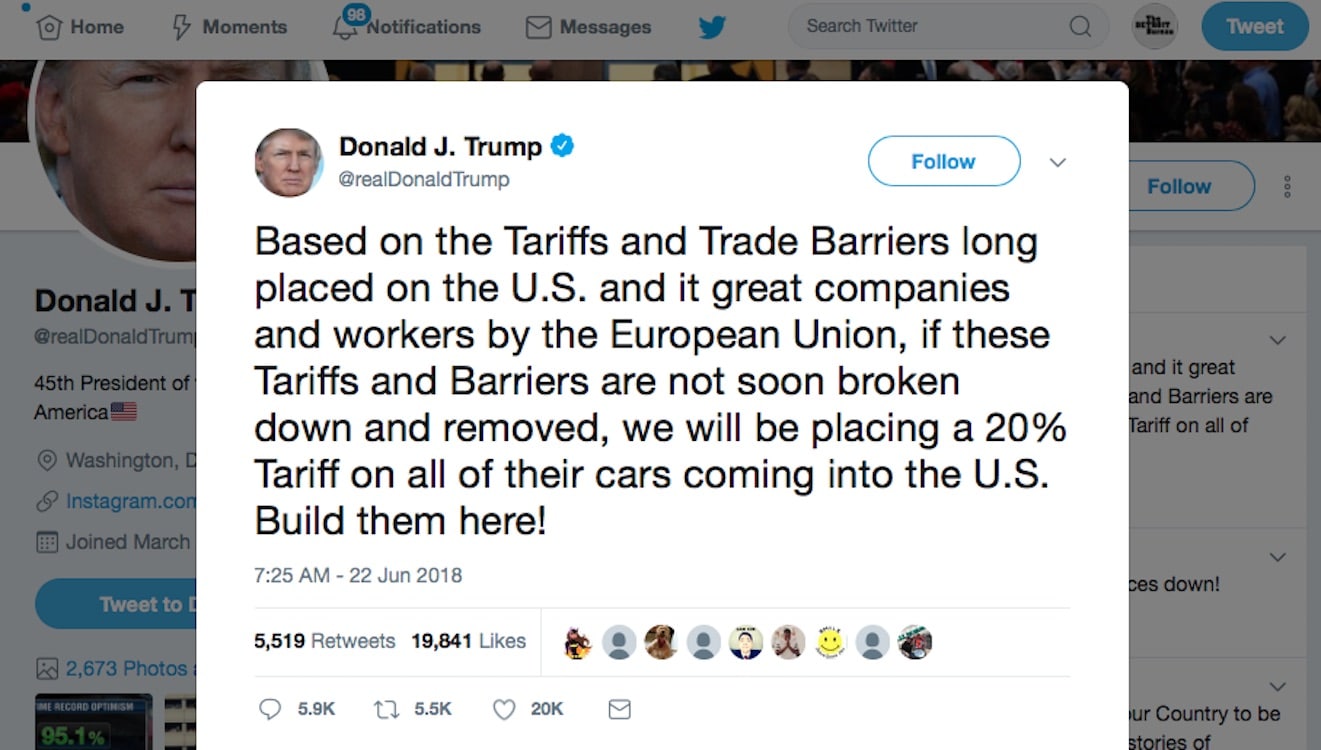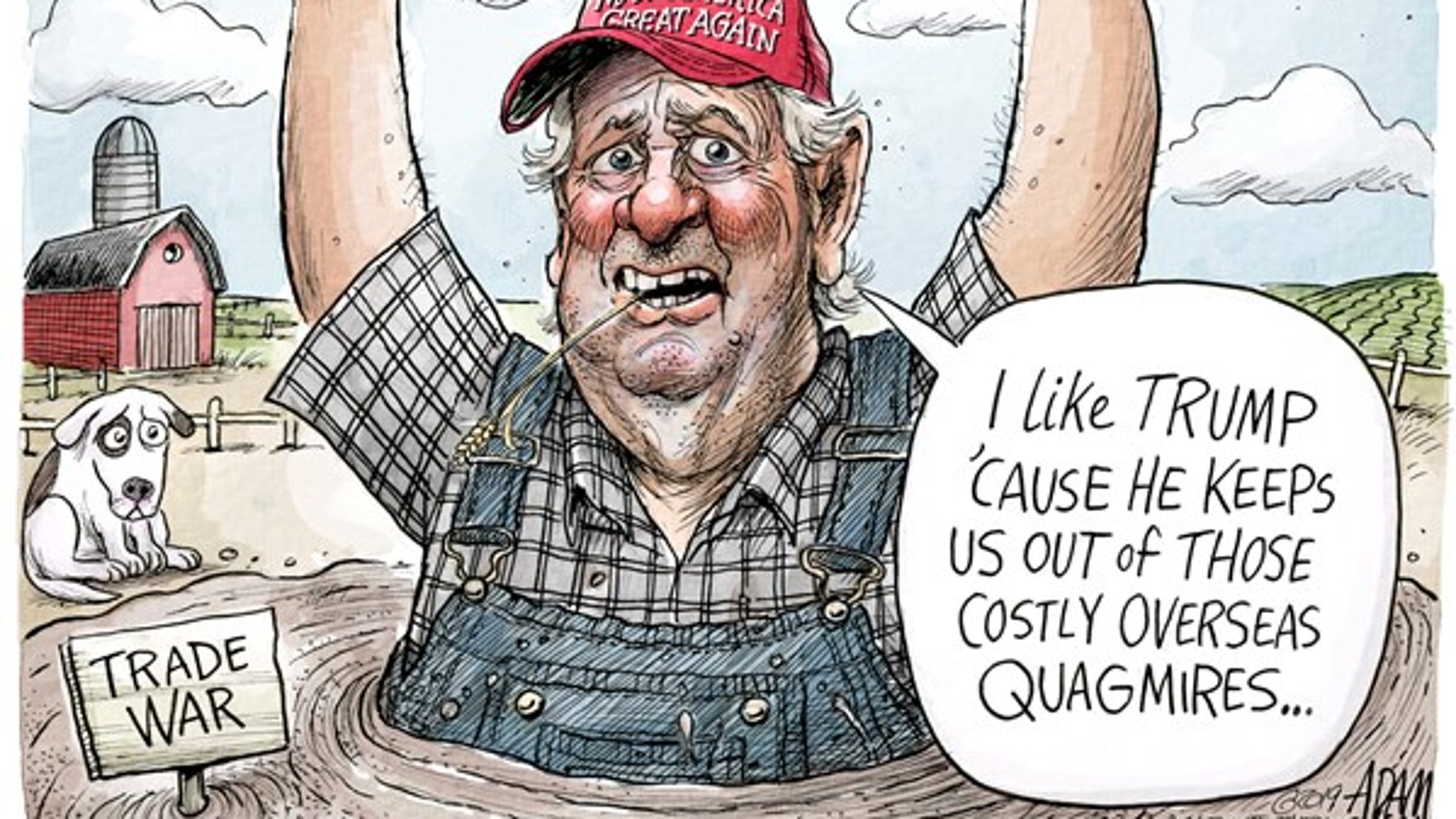Table of Contents
- Pin on Business Finance
- Donald Trump's tariffs are paid by American consumers — not China
- Tin THẾ GIỚI - Tin tức thời sự, an ninh, quân sự thế giới 24h | LAODONG.VN
- Kapan Tabel Tarif Efektif Pph Pasal Berlaku Ini Kata - vrogue.co
- Tin THẾ GIỚI - Tin tức thời sự, an ninh, quân sự thế giới 24h | LAODONG.VN
- DealBook Briefing: A Tariff Pause, but the Reprieve May Be Temporary ...
- Benarkah RateS Tutup? AsiaCommerce Bisa Jadi Alternatif
- Trump Doubles Down on 20% Tariff Threat on EU Imported Vehicles ...
- 「アメリカ湾」訴訟の可能性も、メキシコ大統領がグーグルに抗議 - Bloomberg
- ტრამპმა ხელი მოაწერა იმპორტირებული ფოლადის და ალუმინის 25%-ით დაბეგვრის ...


The tariffs in question were initially imposed as a response to what the Trump administration deemed unfair trade practices by other nations. The idea behind reciprocal tariffs is to level the playing field by imposing similar tariffs on countries that have higher tariffs on American goods. However, this move has been criticized for potentially escalating trade tensions and harming American businesses and consumers.


Exceptions to the Rule


Other exceptions include countries that have not made significant efforts to reduce their trade barriers or have been found to engage in unfair trade practices. The Trump administration has been vocal about its commitment to fair trade and has used tariffs as a tool to negotiate better trade deals. This pause may be seen as a strategic move to encourage other countries to come to the negotiating table.


Implications and Reactions

Businesses and industries that rely heavily on international trade are watching the situation closely. While a pause in tariff increases may provide some relief, the uncertainty surrounding future trade policies can make it challenging for companies to plan and invest for the long term. The impact on consumers is also a concern, as tariffs can lead to higher prices for imported goods.

A Path Forward
As the world navigates this complex trade landscape, there are several key points to consider. First, the temporary nature of the tariff pause means that countries and businesses must remain vigilant and prepared for any changes. Second, the exceptions to the pause, particularly the ongoing trade dispute with China, indicate that trade tensions are far from resolved.Finally, the use of reciprocal tariffs as a trade policy tool underscores the need for a more comprehensive and sustainable approach to international trade. This includes not only negotiating fair trade agreements but also addressing the systemic issues that lead to trade imbalances and tensions. As the global economy continues to evolve, finding a balance between protecting domestic industries and promoting free and fair trade will be crucial.
In conclusion, Trump's announcement of a 90-day pause on reciprocal tariffs, with exceptions, marks a significant development in the ongoing saga of global trade tensions. While it offers a temporary reprieve for some, it also highlights the complexities and challenges of navigating international trade in the current geopolitical climate. As the world waits to see what the future holds, one thing is clear: the path forward will require careful negotiation, strategic planning, and a commitment to finding solutions that benefit all parties involved. Learn More about the latest developments in trade policy and how they might affect your business or industry.